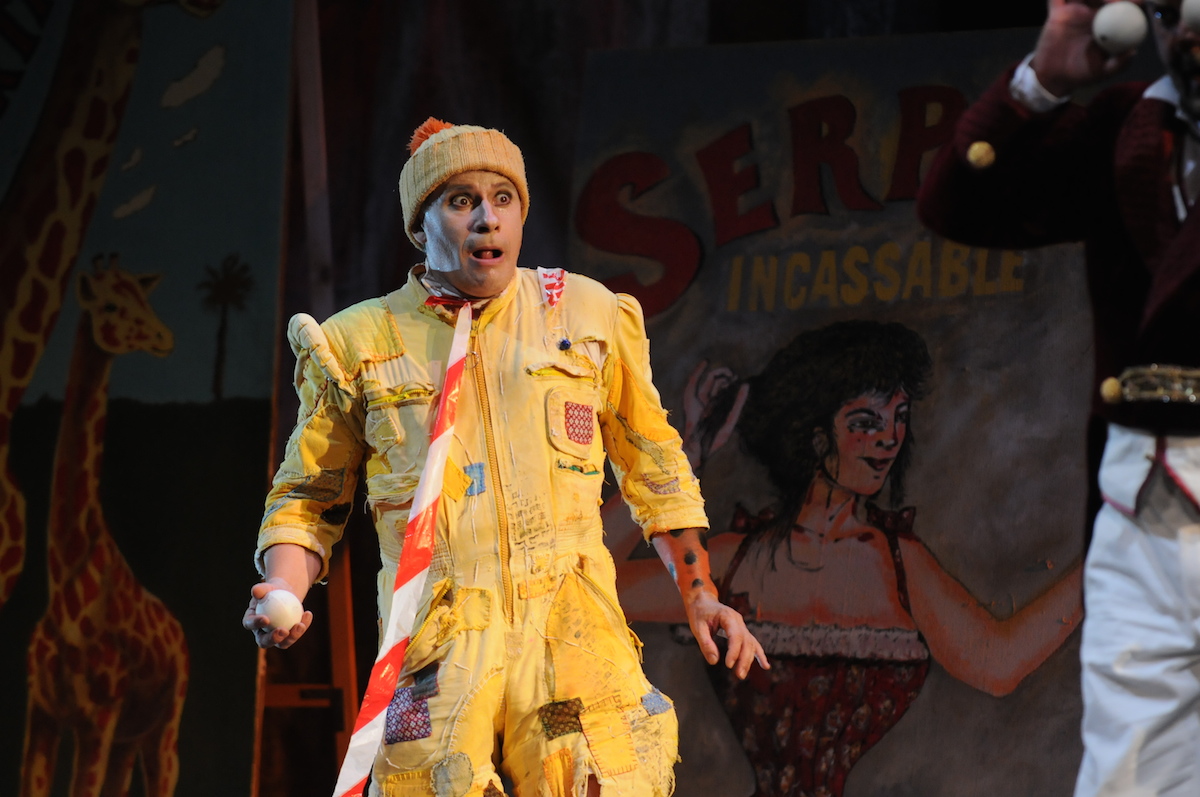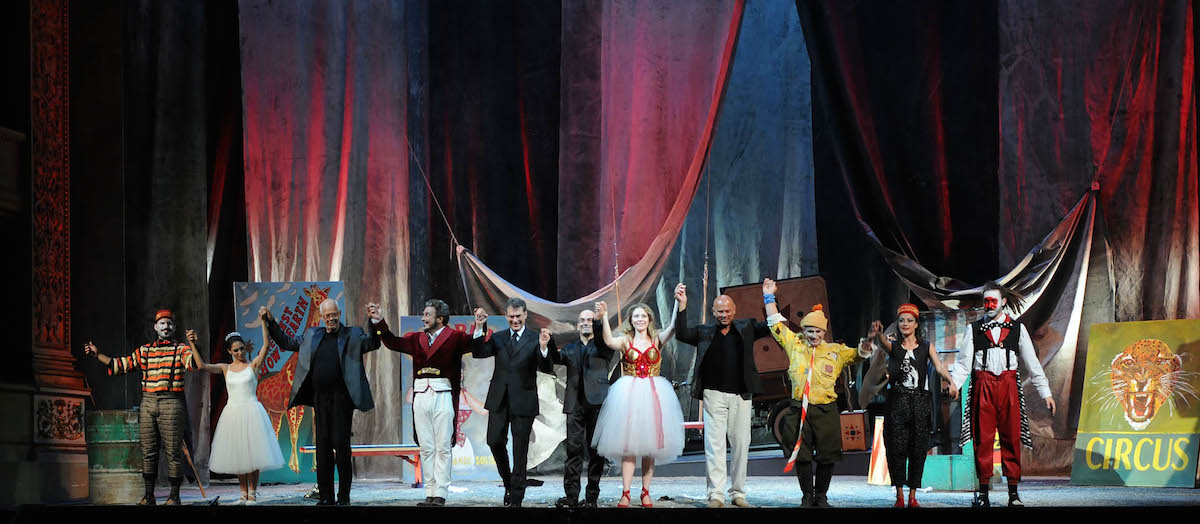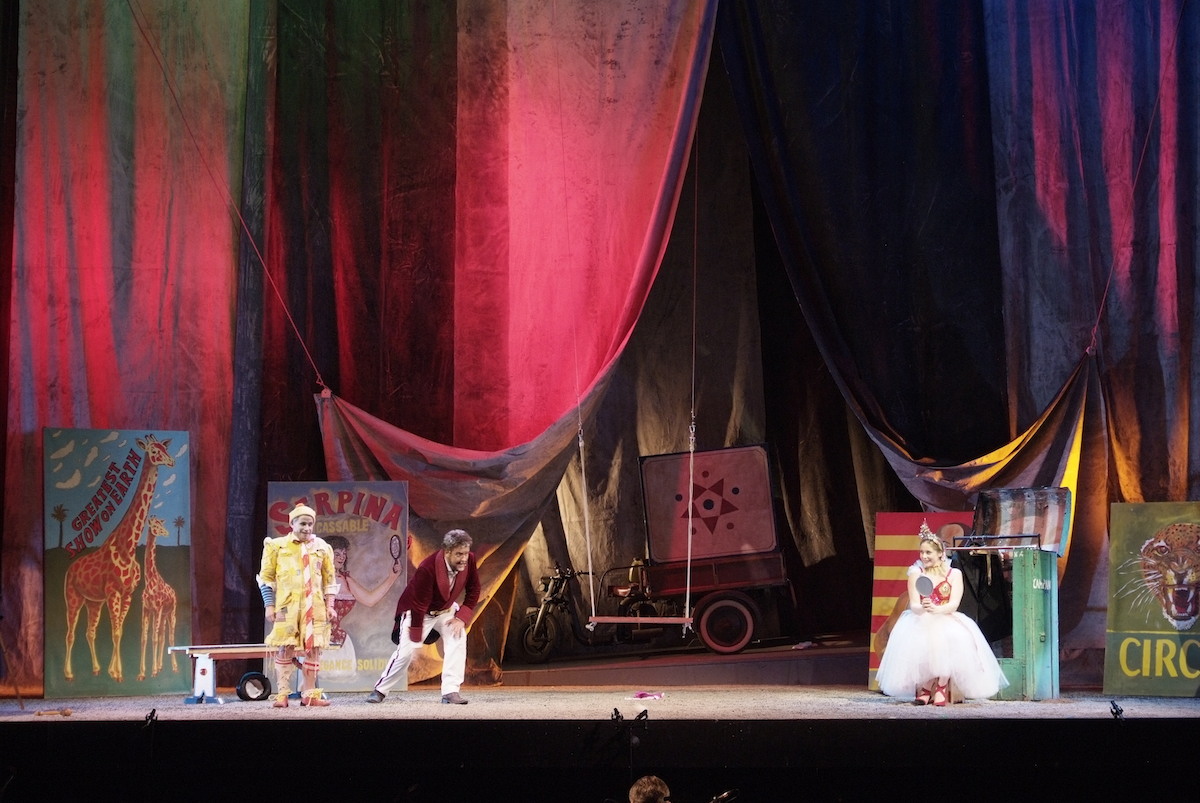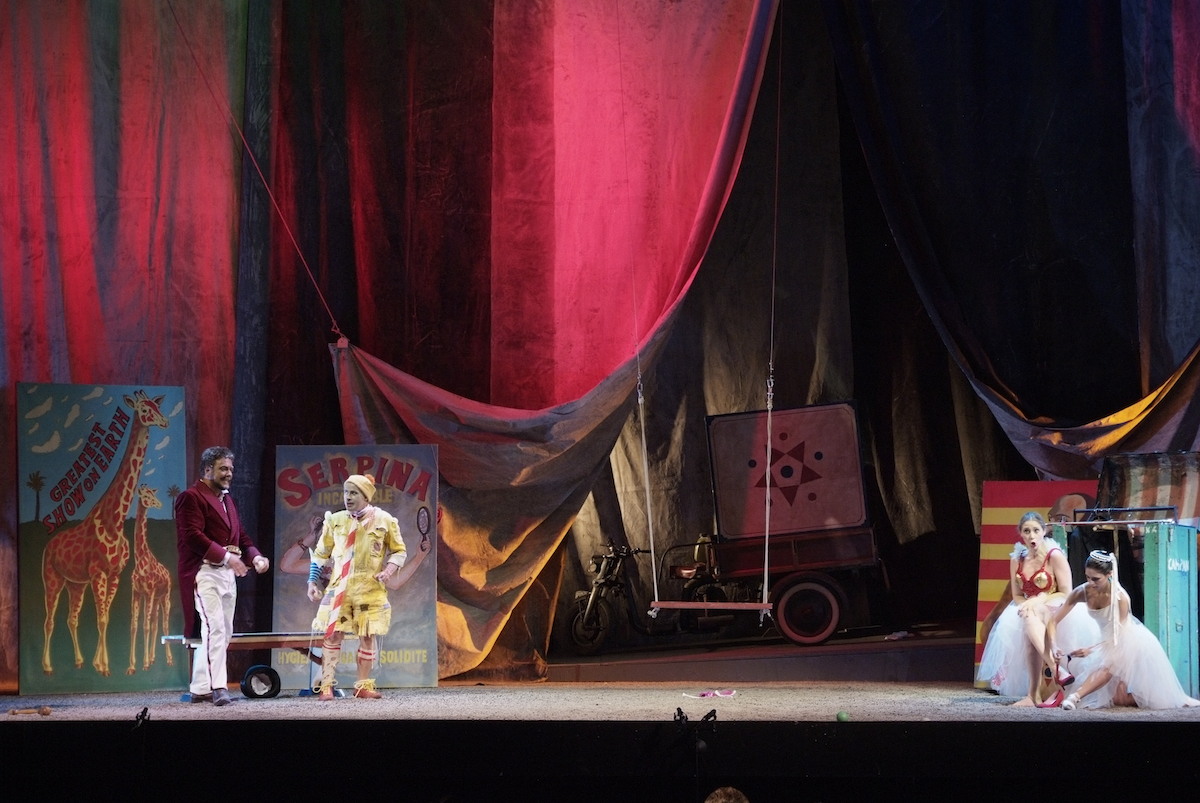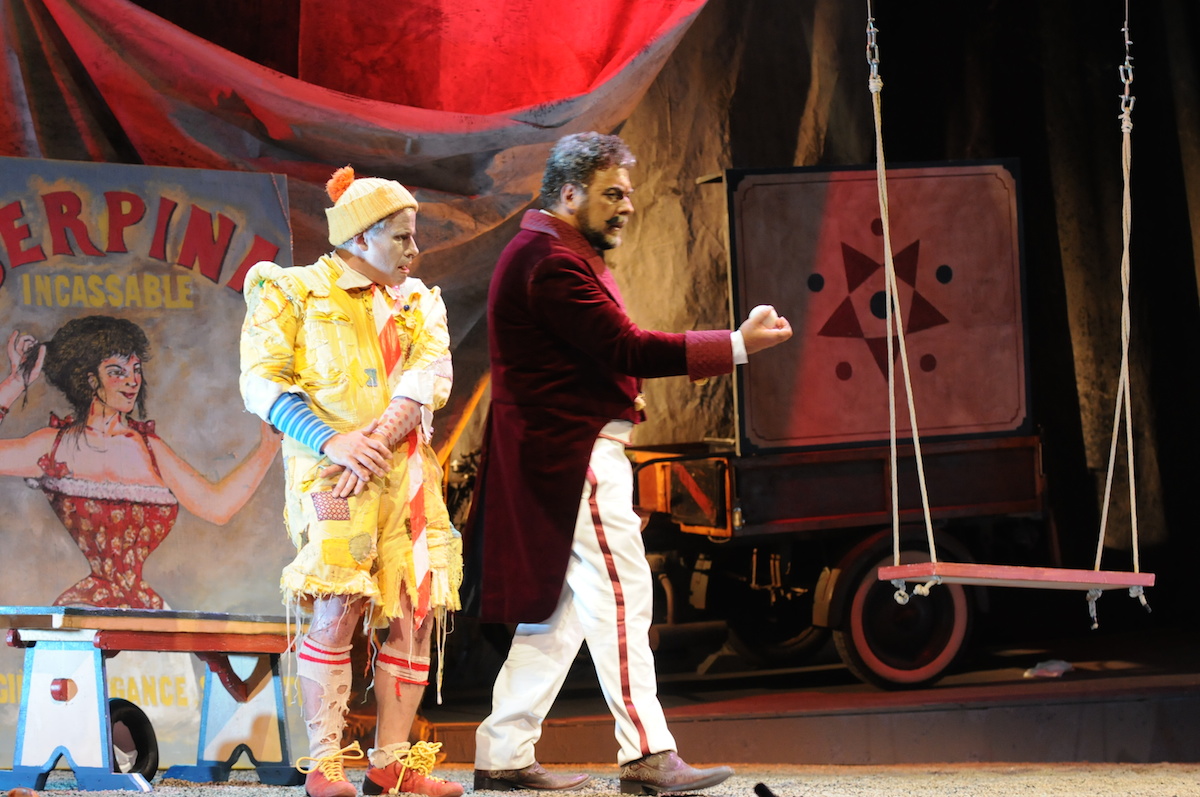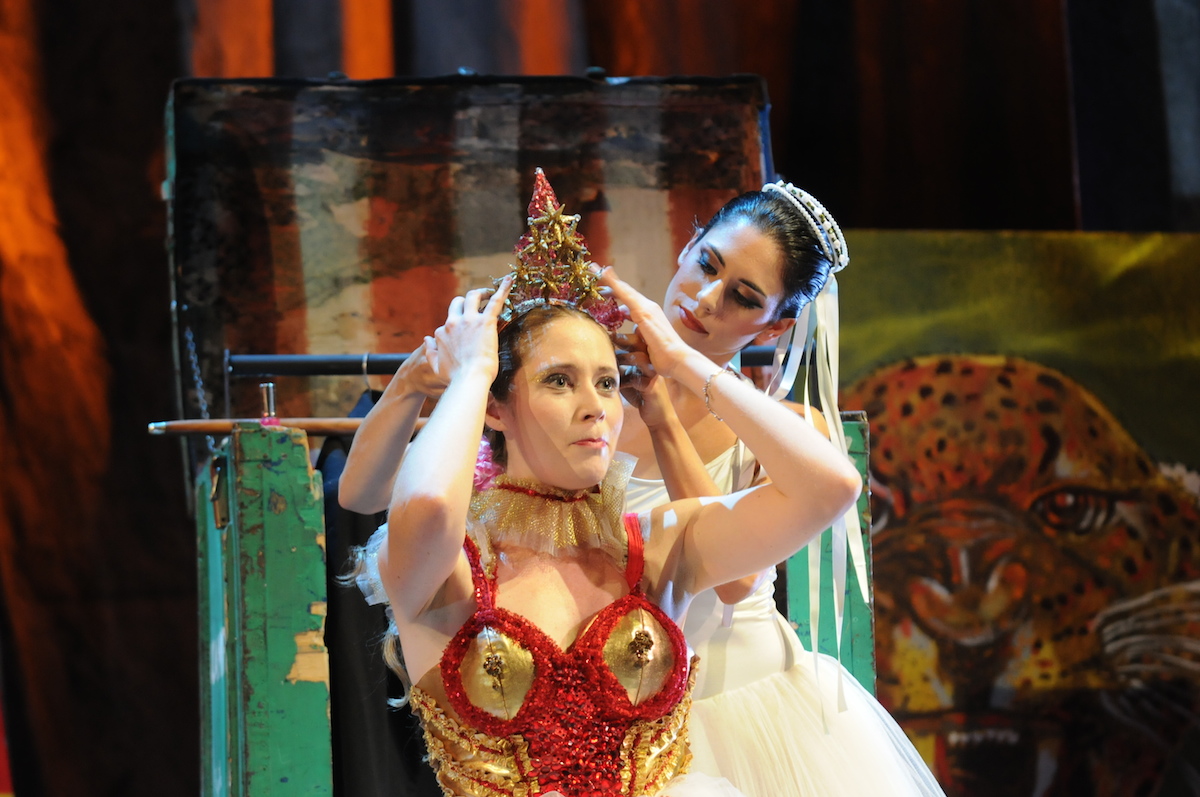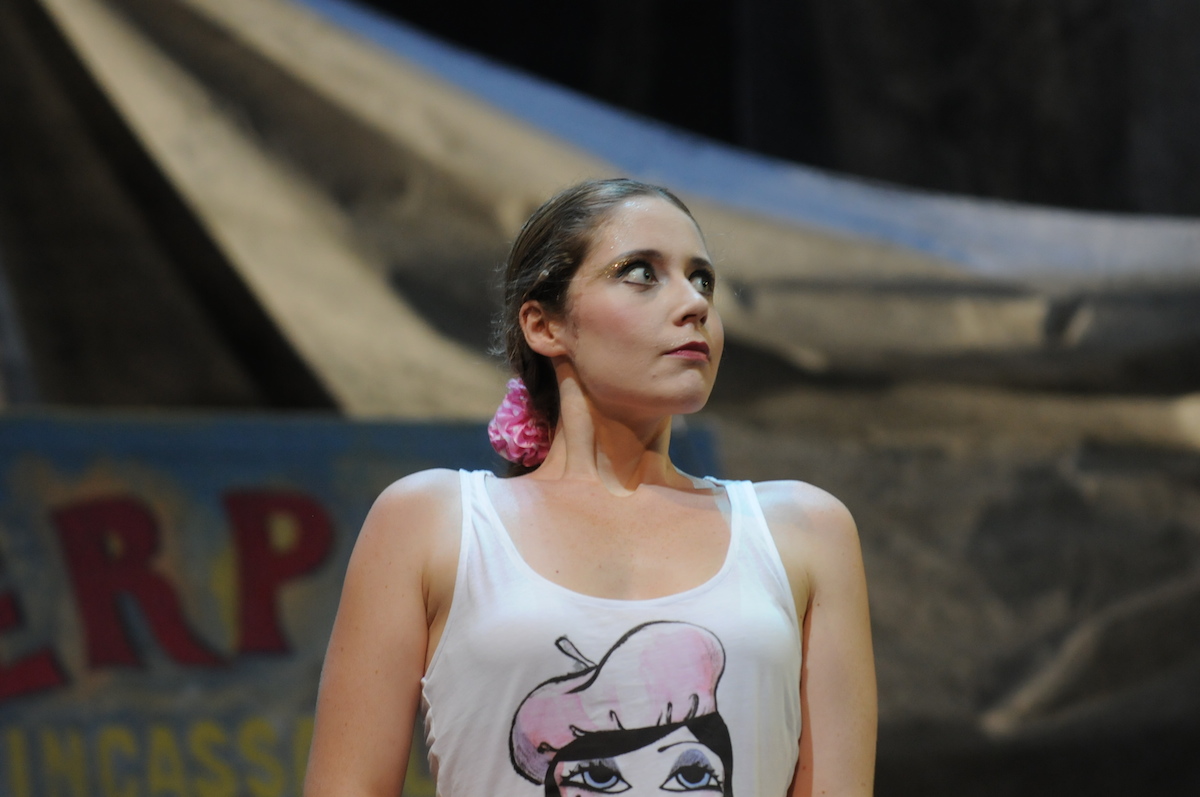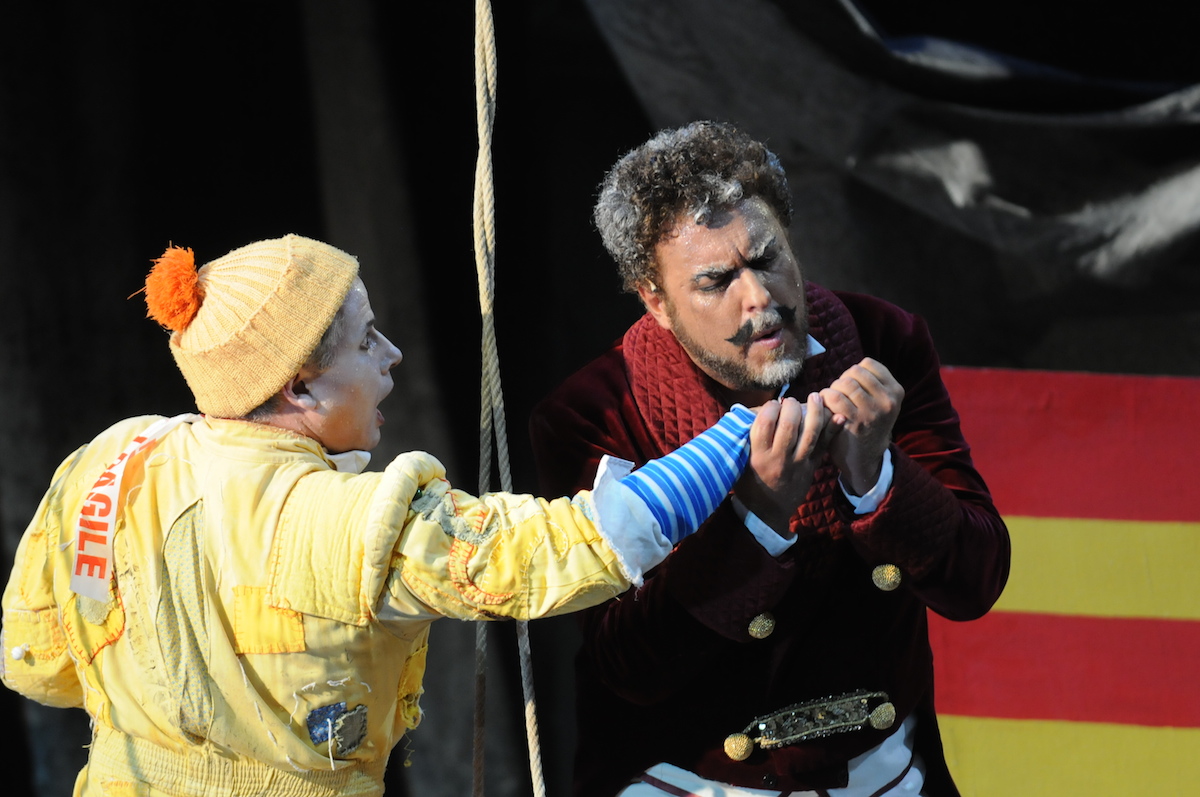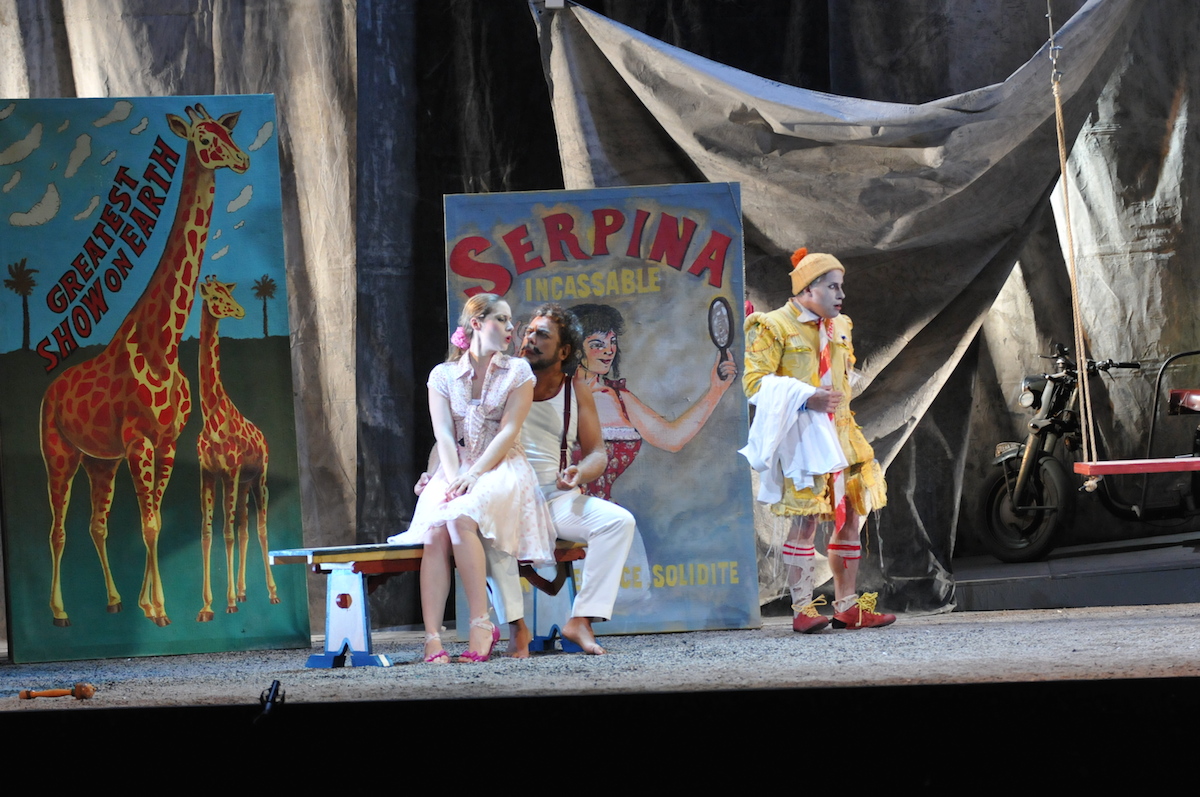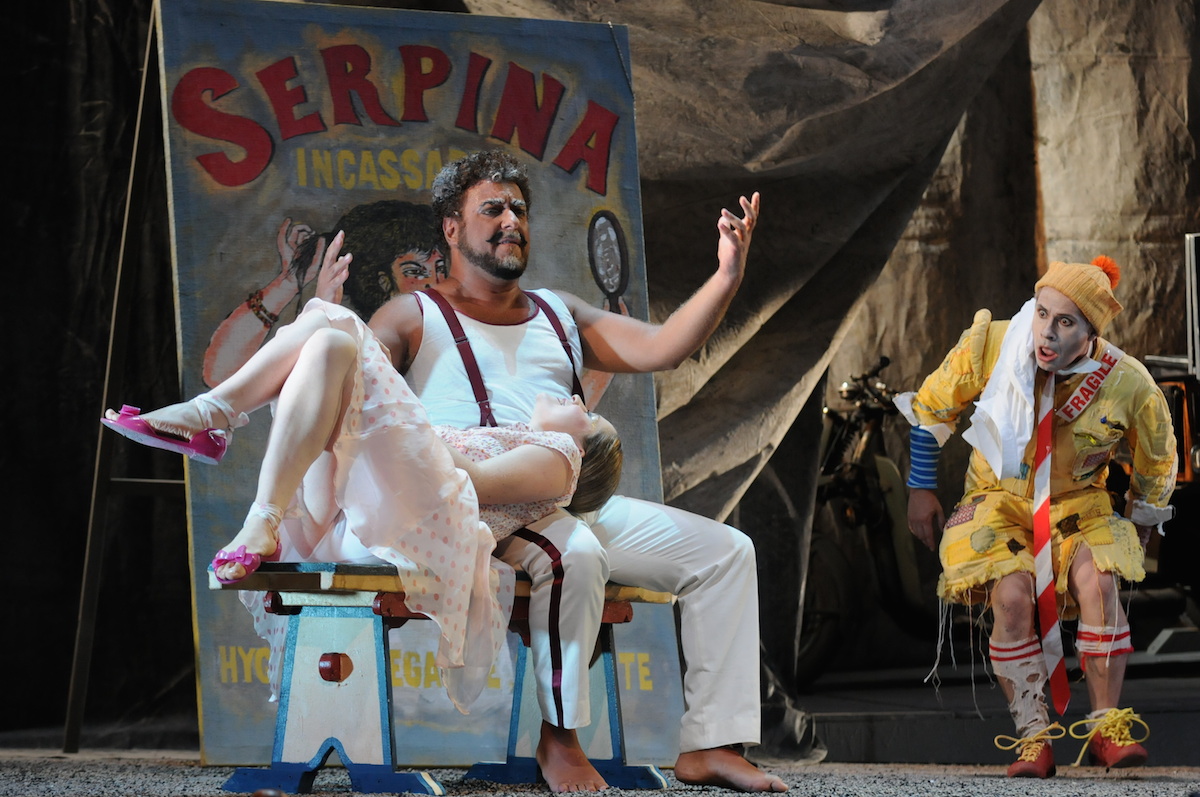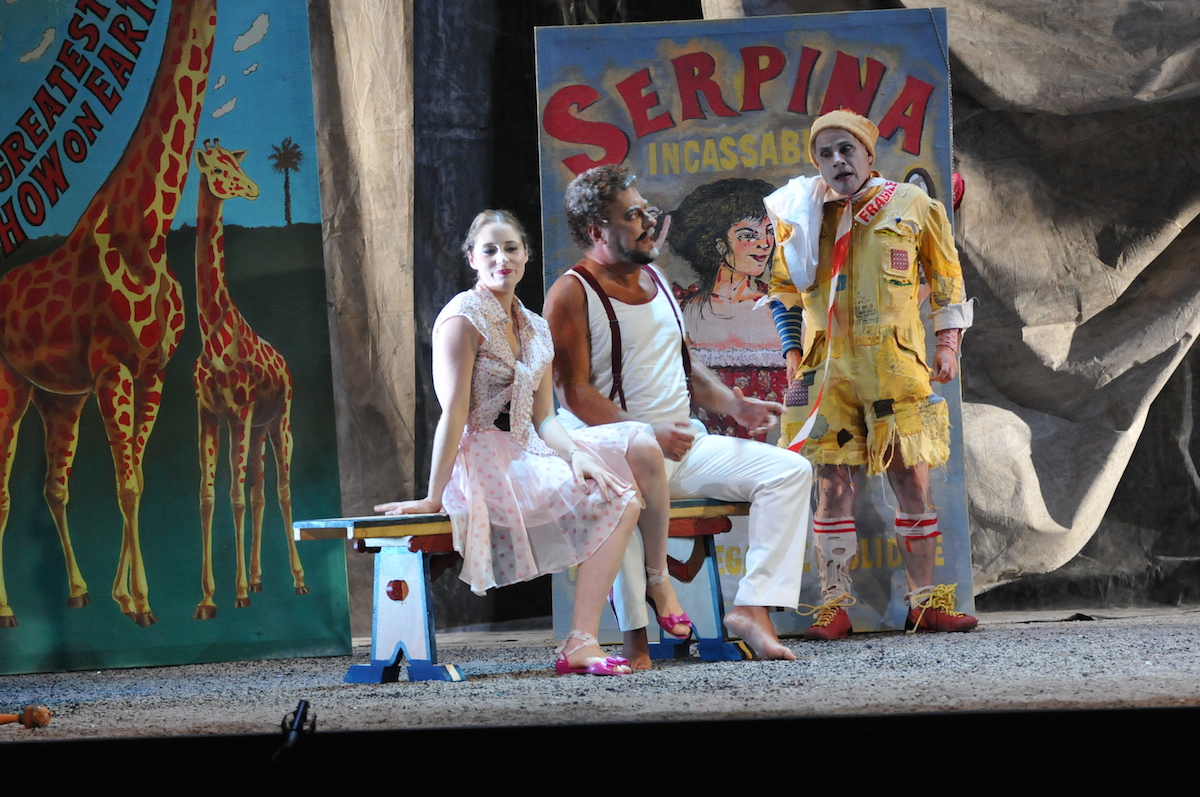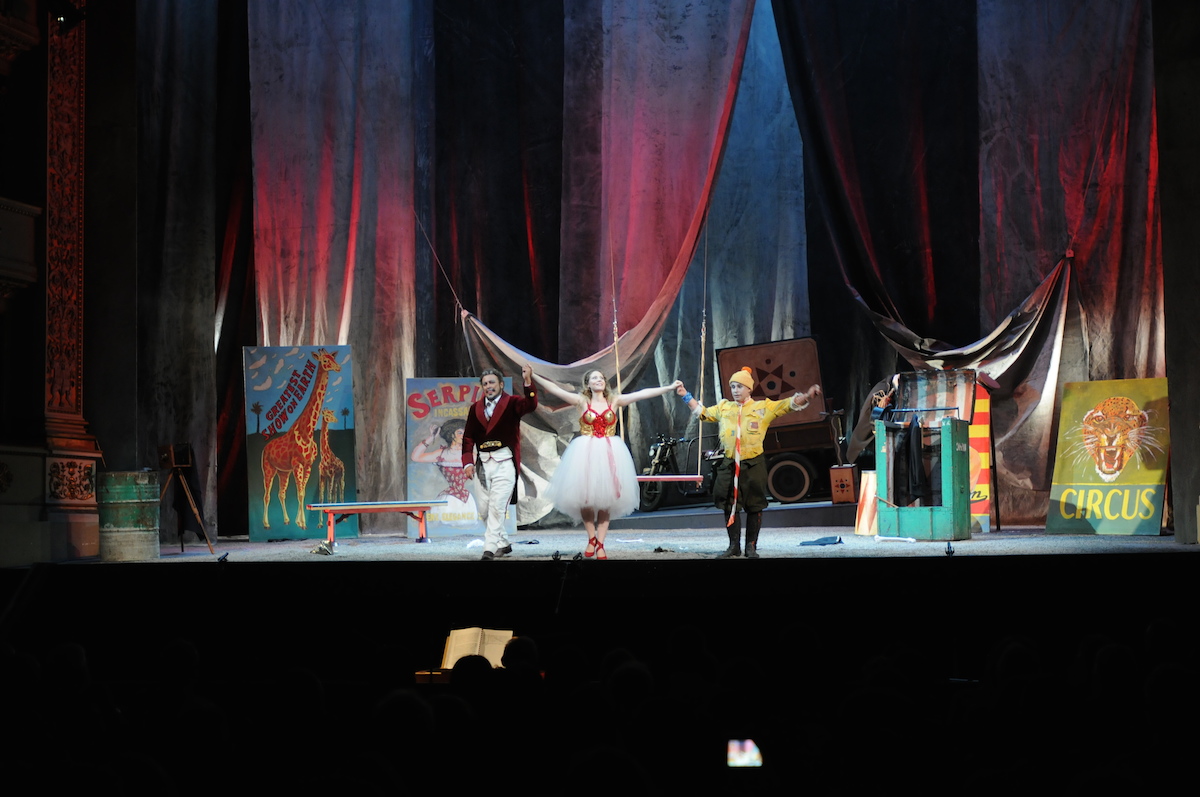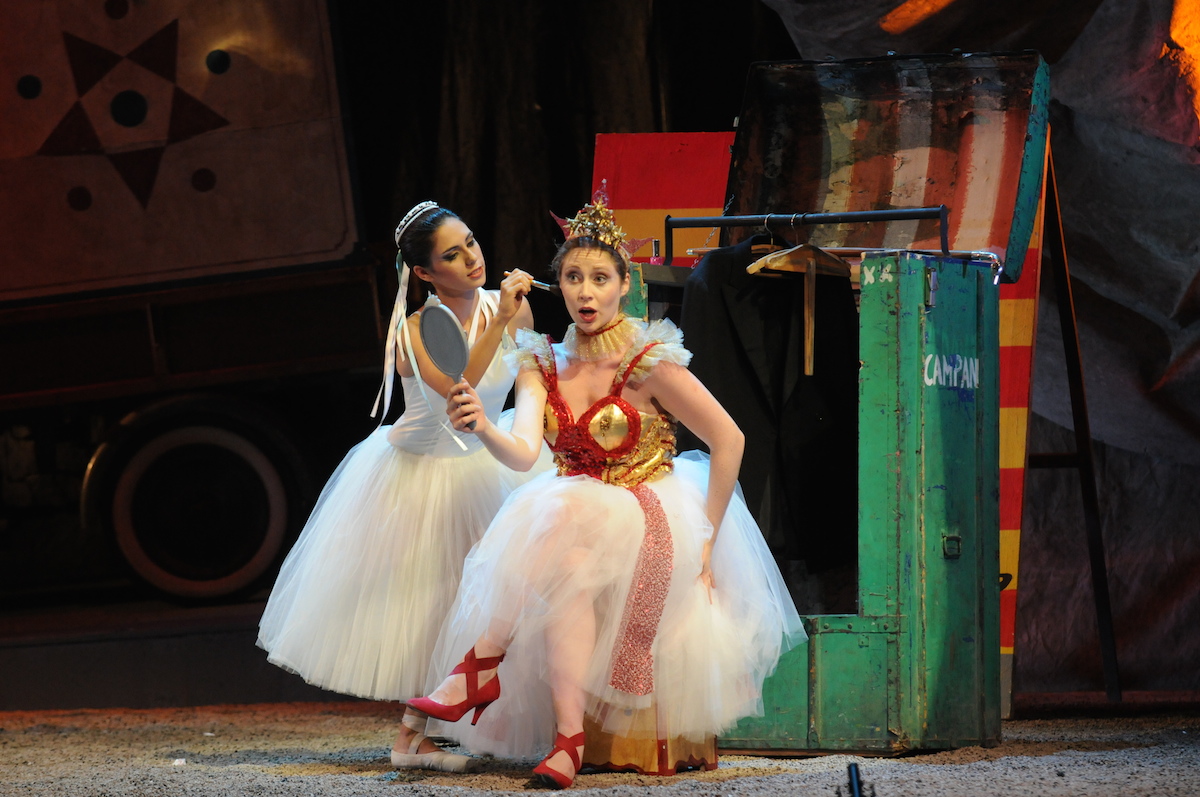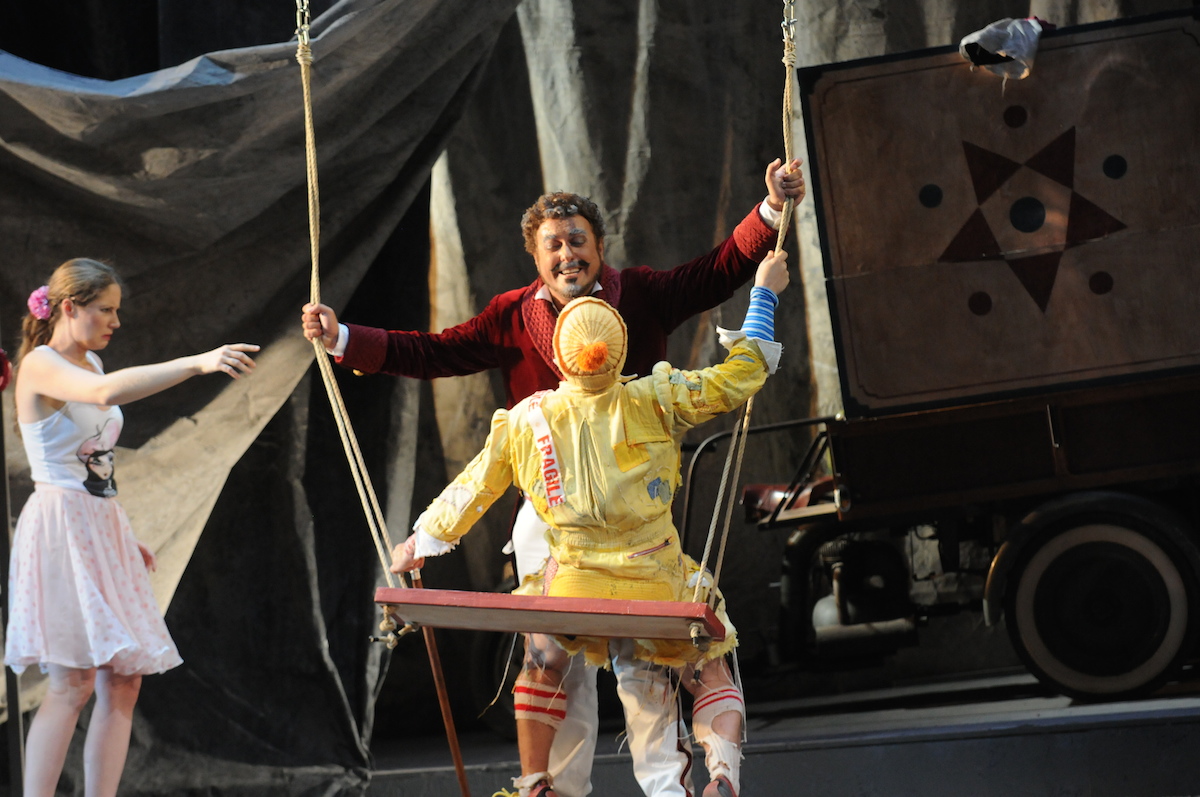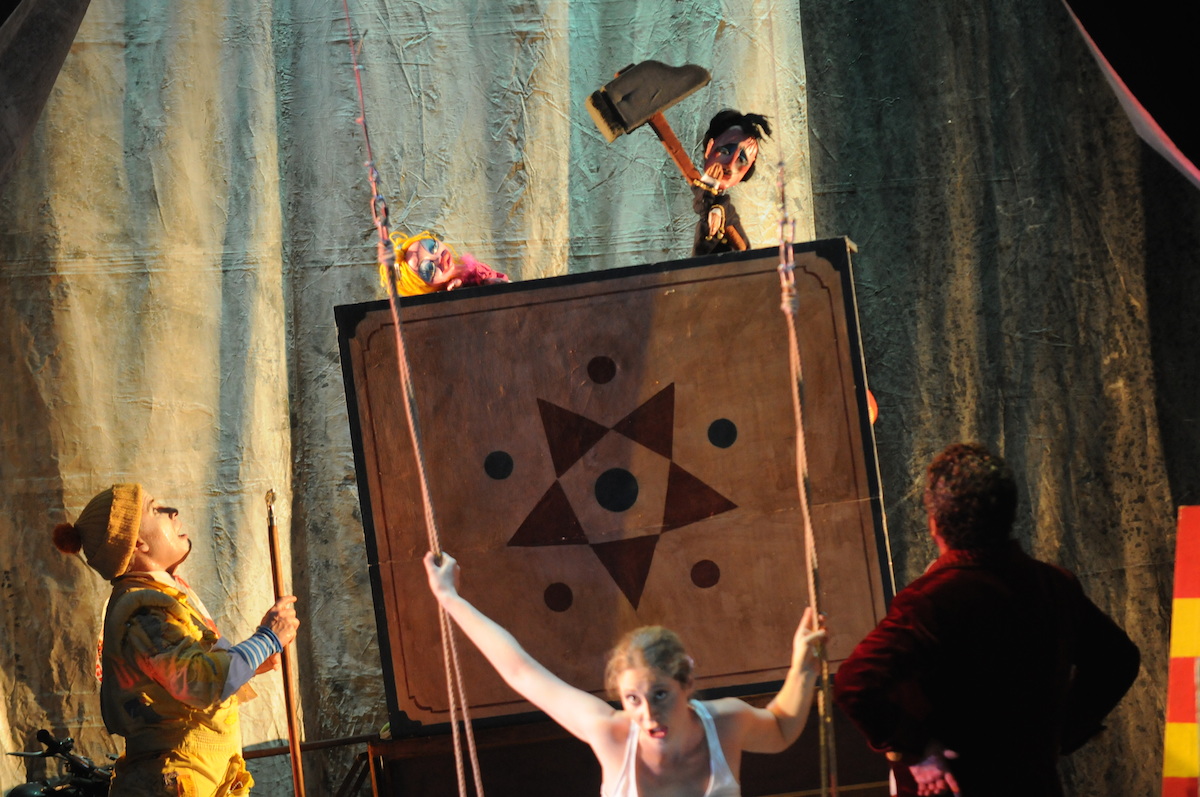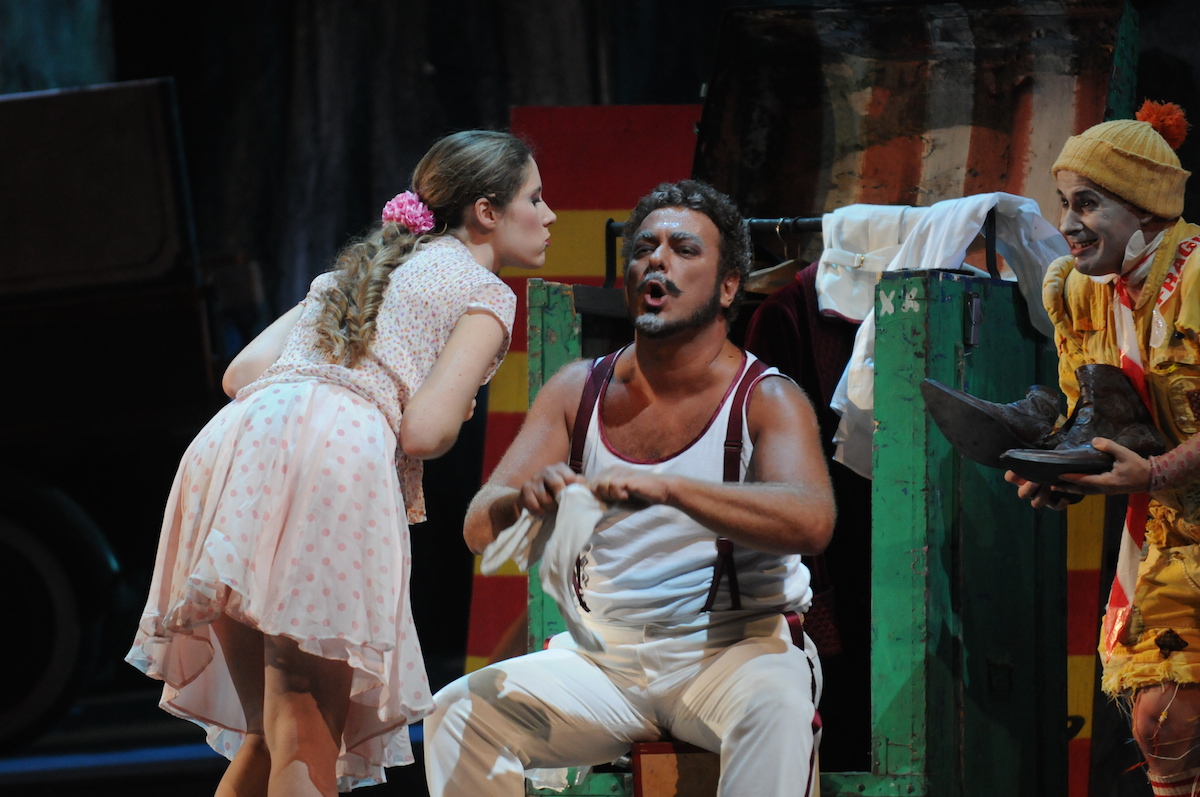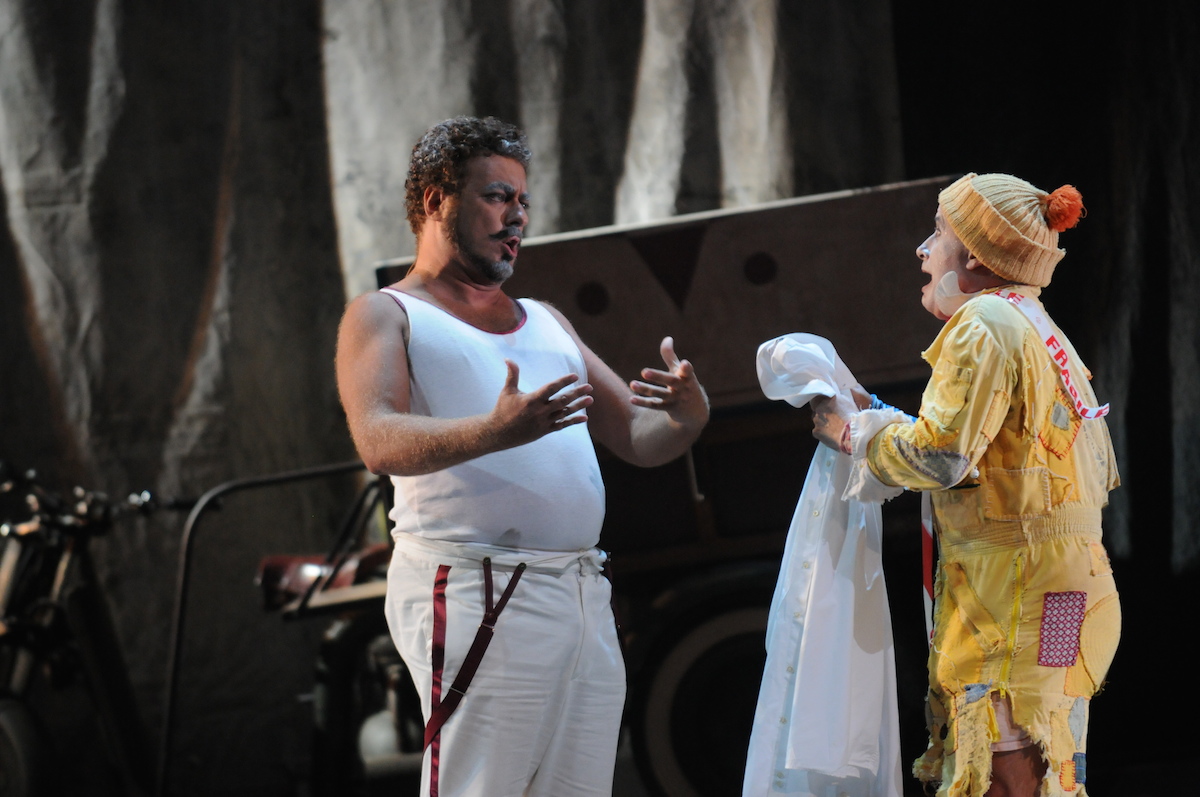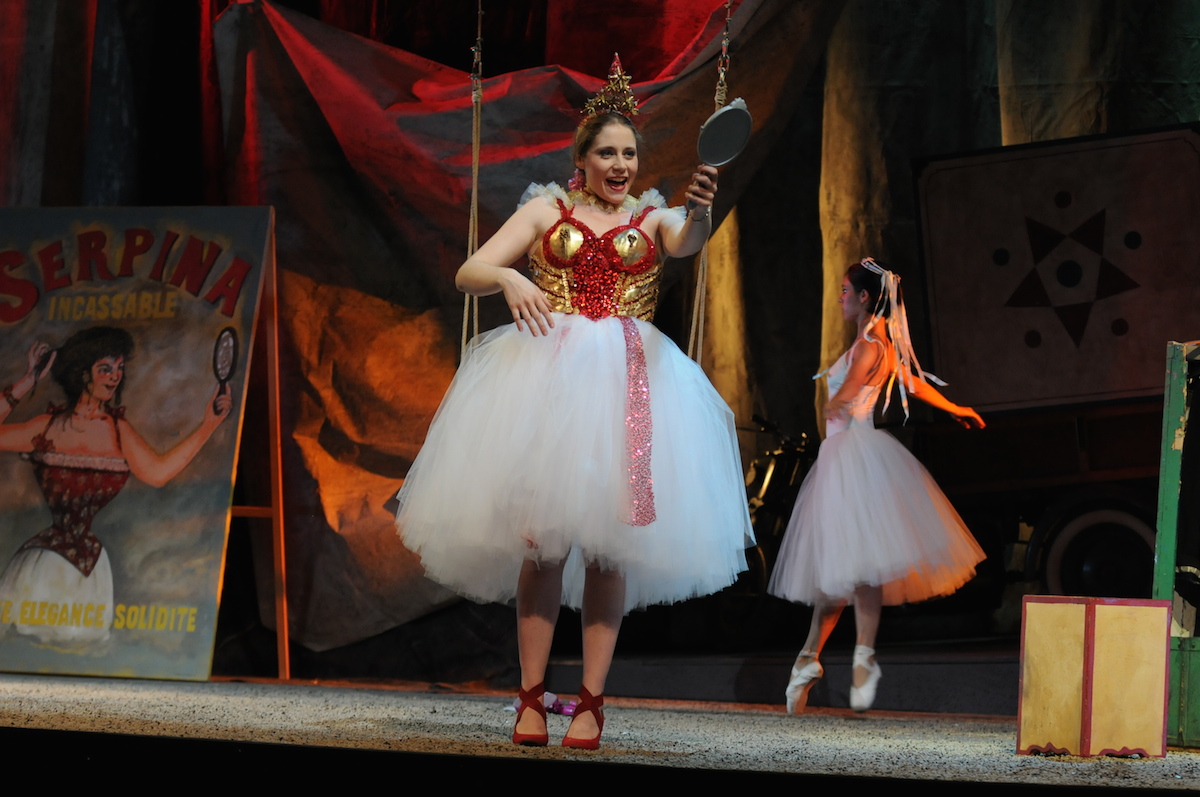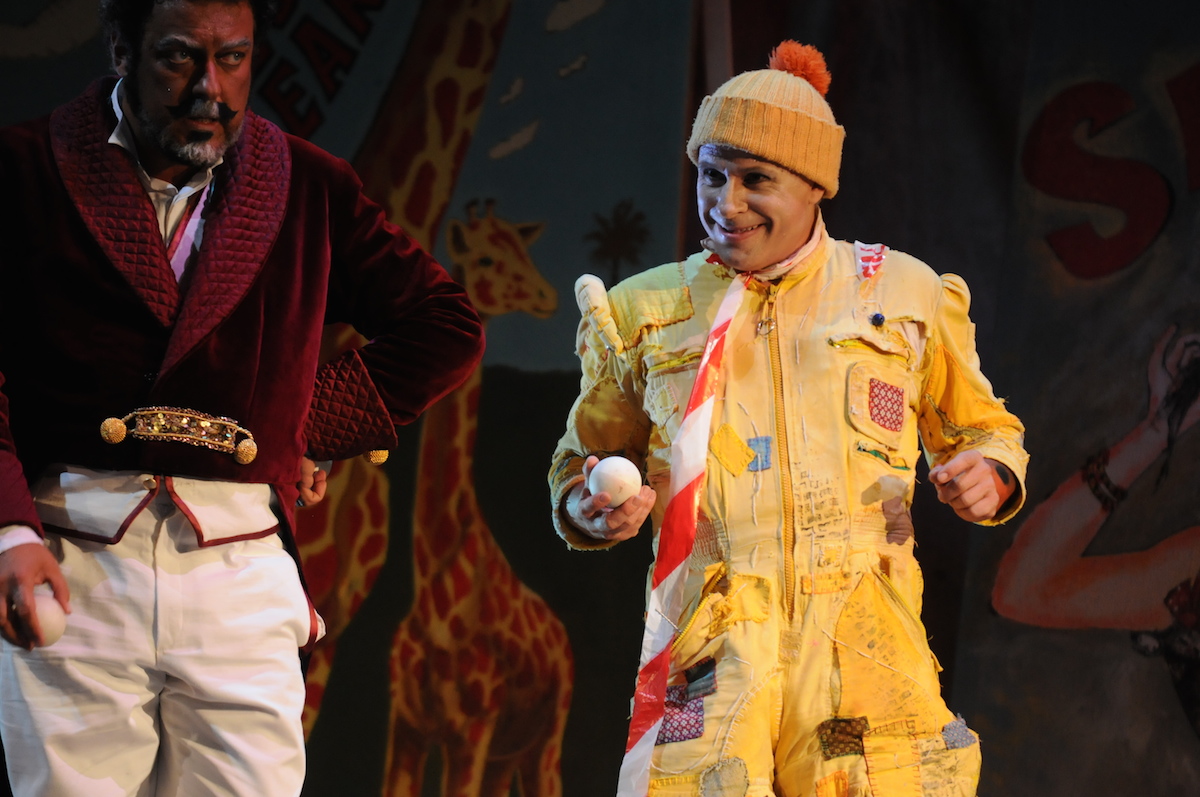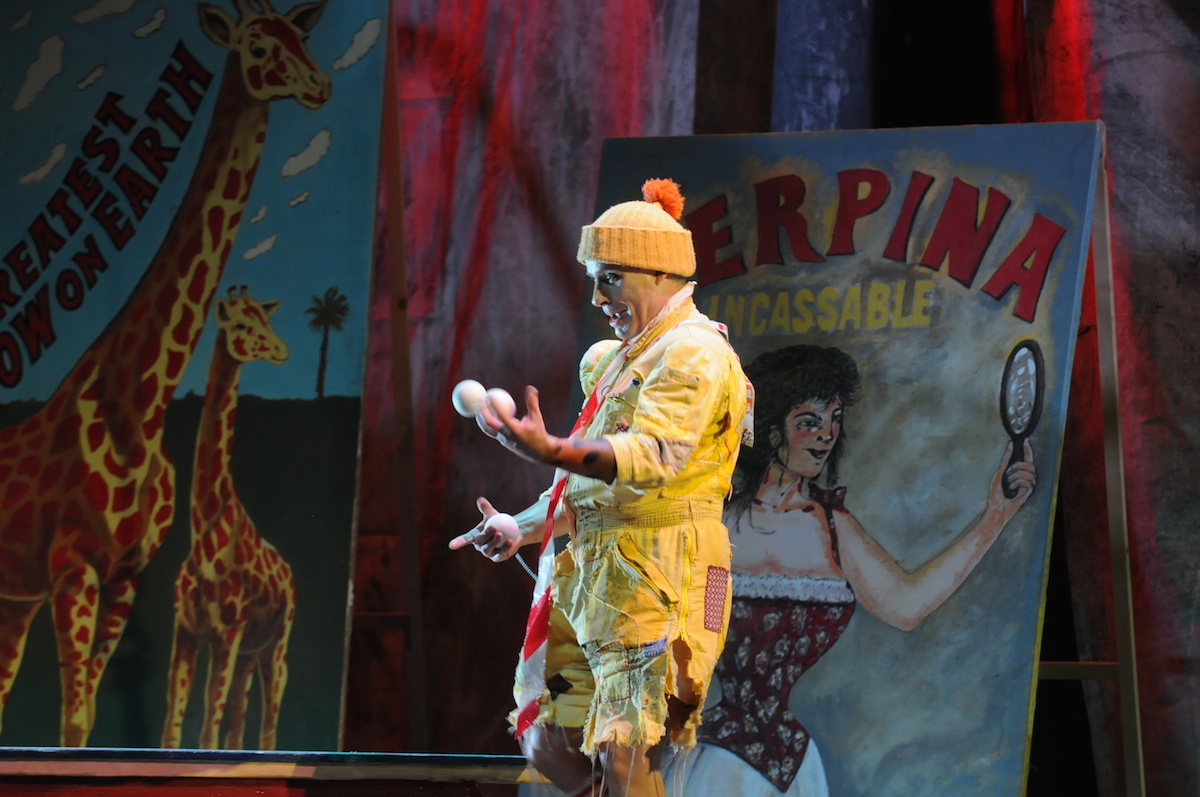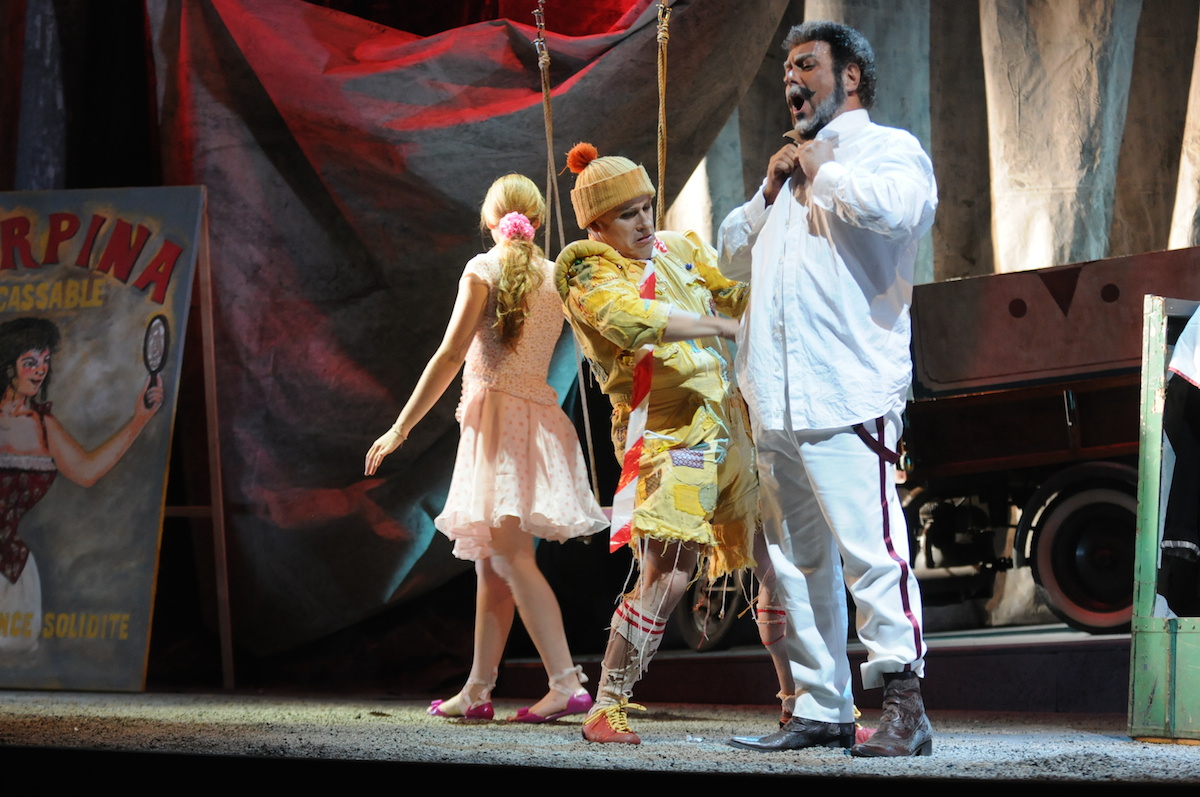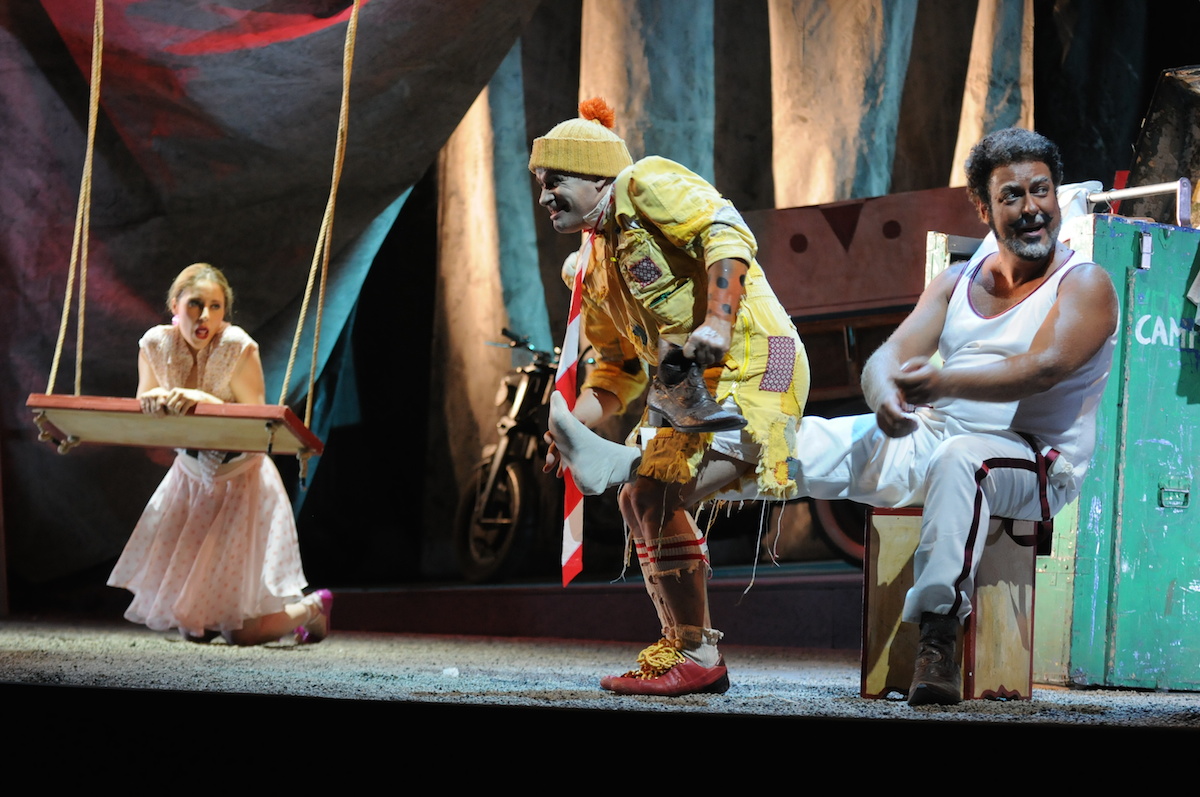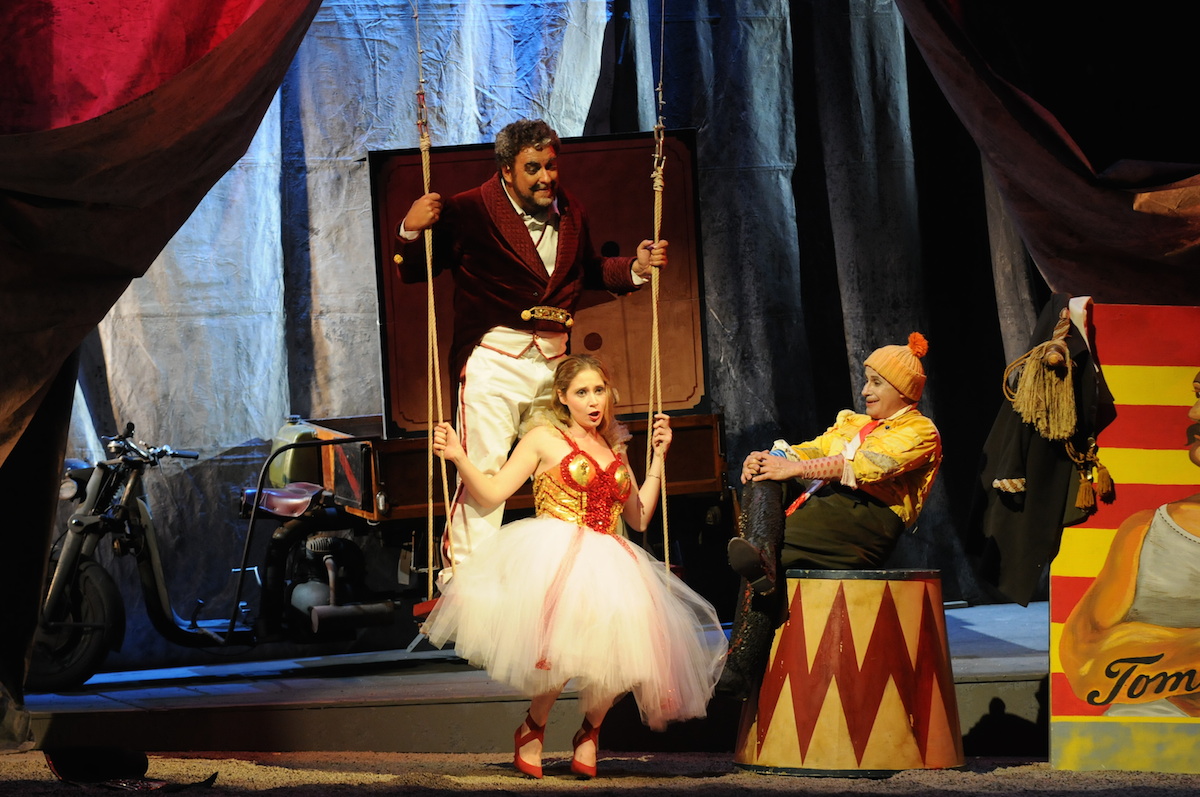Meningue interprets diverse roles as clown and actor
in his four operas and in the intermezzo in an act from Samuel Beckett.
Shows currently performing, planned schedules.
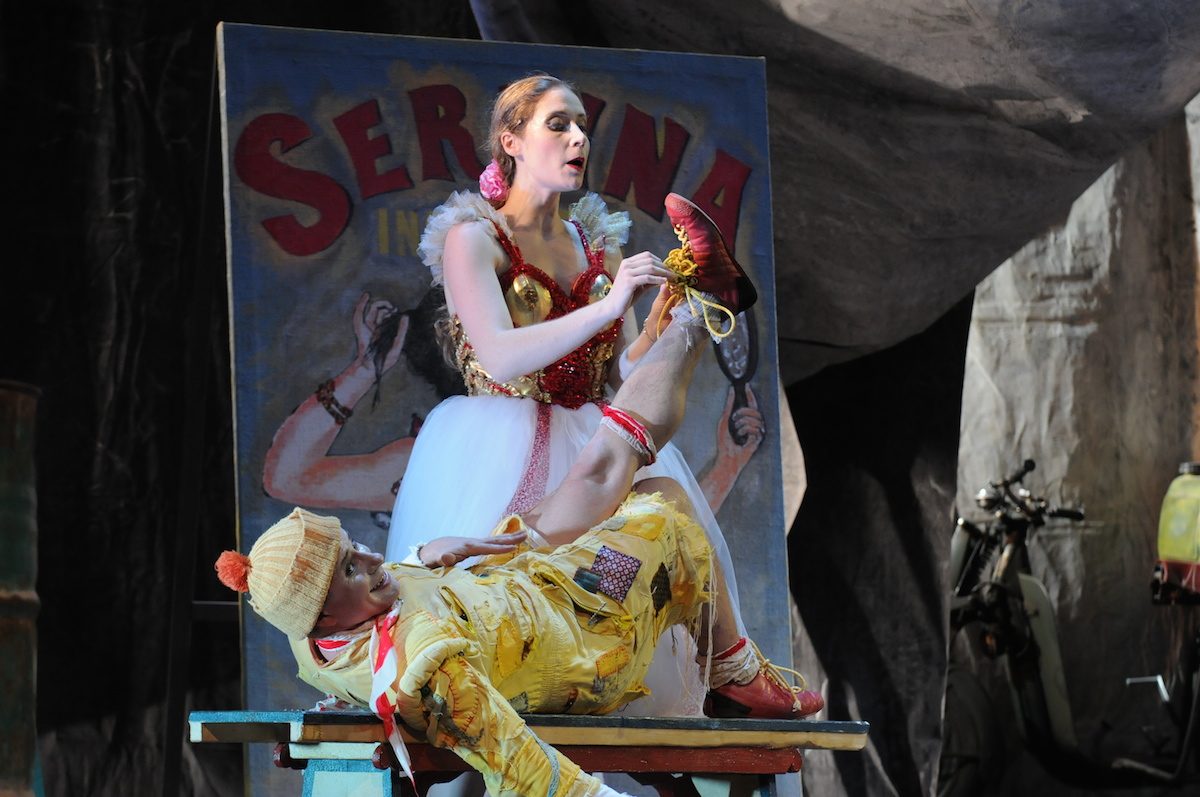
Tour dates
- 1 January 2023 - Teatro dell'Iride di Petritoli - Marche-Italia
- 29 December 2022 - 31 December 2022 - Teatro delle marche
Music by G.B Pergolesi
Vespone is interpreted by Méningue
From the book by Gennaro Antonio Federico it was shown for the first time at the San Bartolomeo theatre in Naples on the 28th August, 1733. Its representation at the Paris Opera in 1752 unleashed the famous “quarrel of fools”. The stage director, Henning Brockhaus, chose to show it in the form of a musical comedy set in an old circus and interrupted by a “Mimodrama”: an act without words by Samuel Beckett in 1956, interpreted by Méningue in the role of “Un Uomo” (A Man).
La Serva Padrona is a celebrated amusing intermezzo by Giovanni Battista Pergolesi.
The story is told in few words.The servant Serpina, wants to become the lady of the house and knowing her old master, Uberto’s erotic weaknesses, contrives a plot to convince him despite everything, to marry her.
And then there is a character who we haven’t yet spoken about, the mute, Vespone. His position in society is unclear. He appears to be a sort of jack of all trades but he is more than that.The invention of this character is another stroke of genius because he serves as a buffer betwen Serpina and Uberto. Henning Brockhaus.
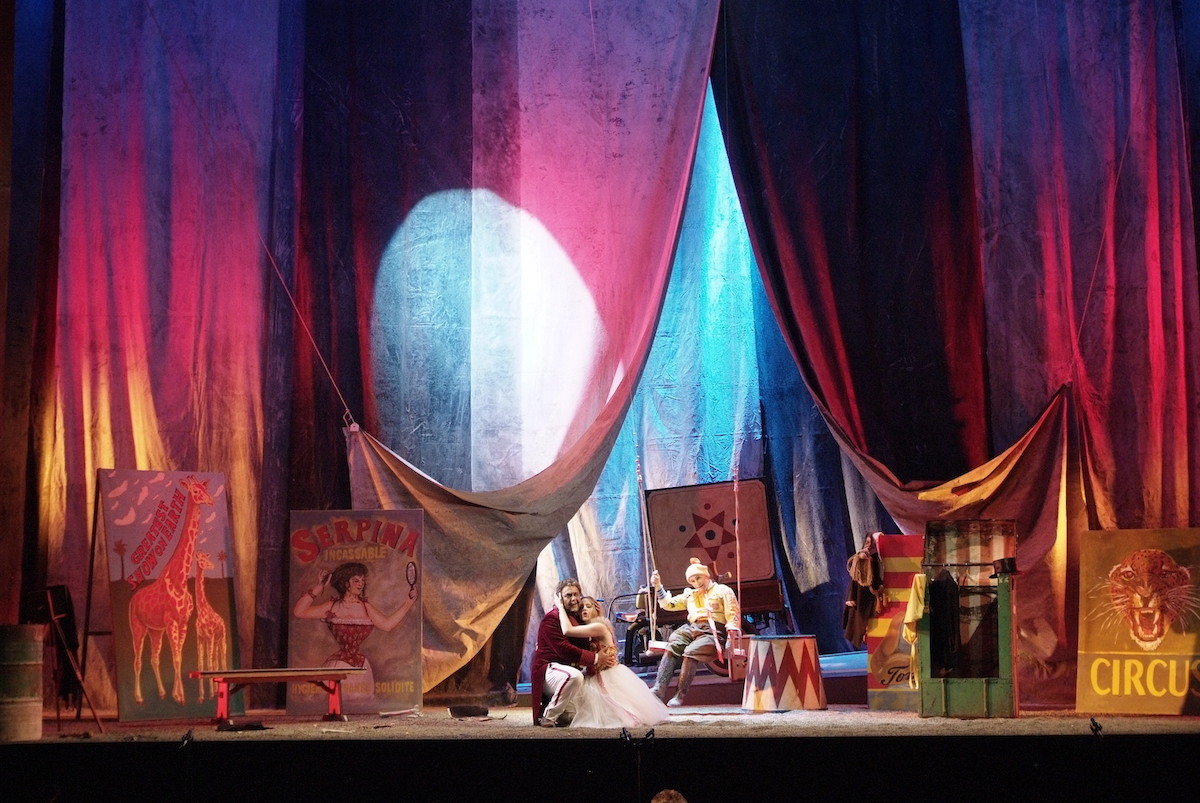
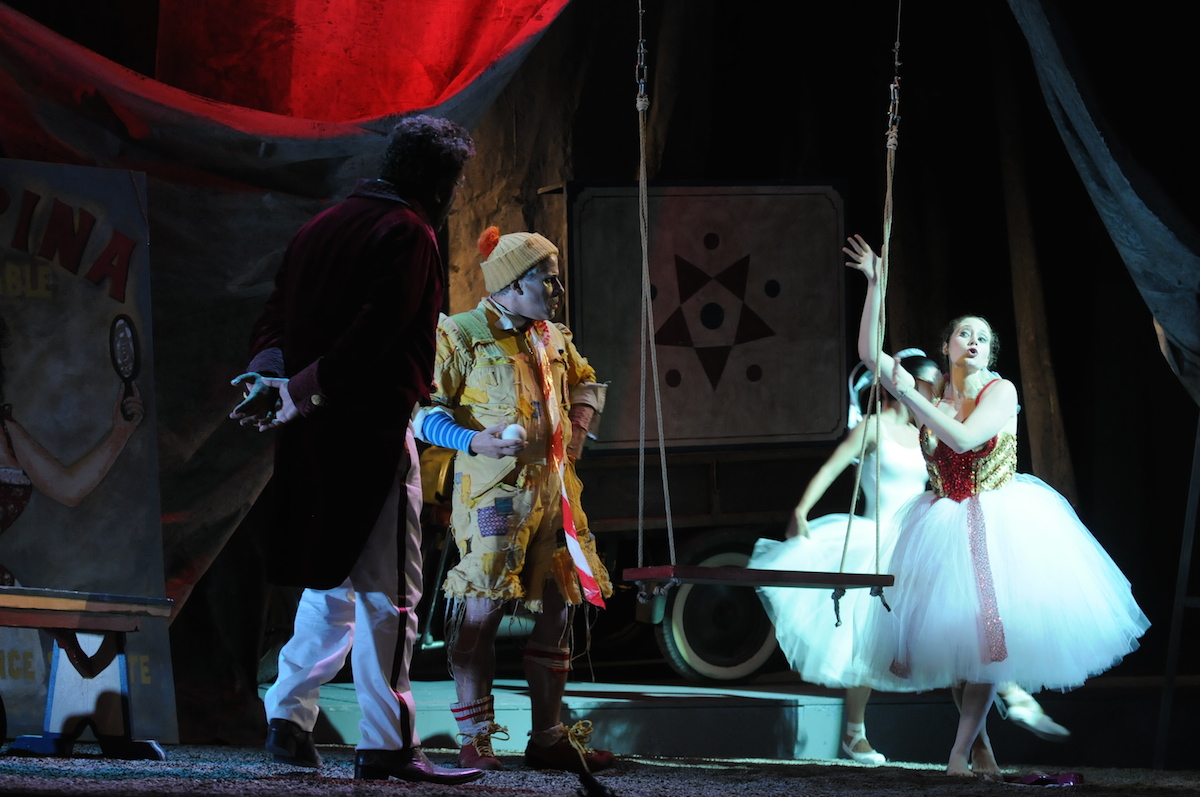
Conductor : Corrado Rovaris
Stage Director : Henning Brockhaus
Serpina : Alessandra Marianelli
Uberto : Carlo Lepore
Vespone : Jean Méningue
Sets: Benito Leonardi
Costumes : Giancarlo Colis
Ligthing : Alessandro Carletti
It was created for the eleventh edition of the Pergolesi Spontini festival in Jesi, in September 2011.
It was created initially for the fourth edition in 2004.
